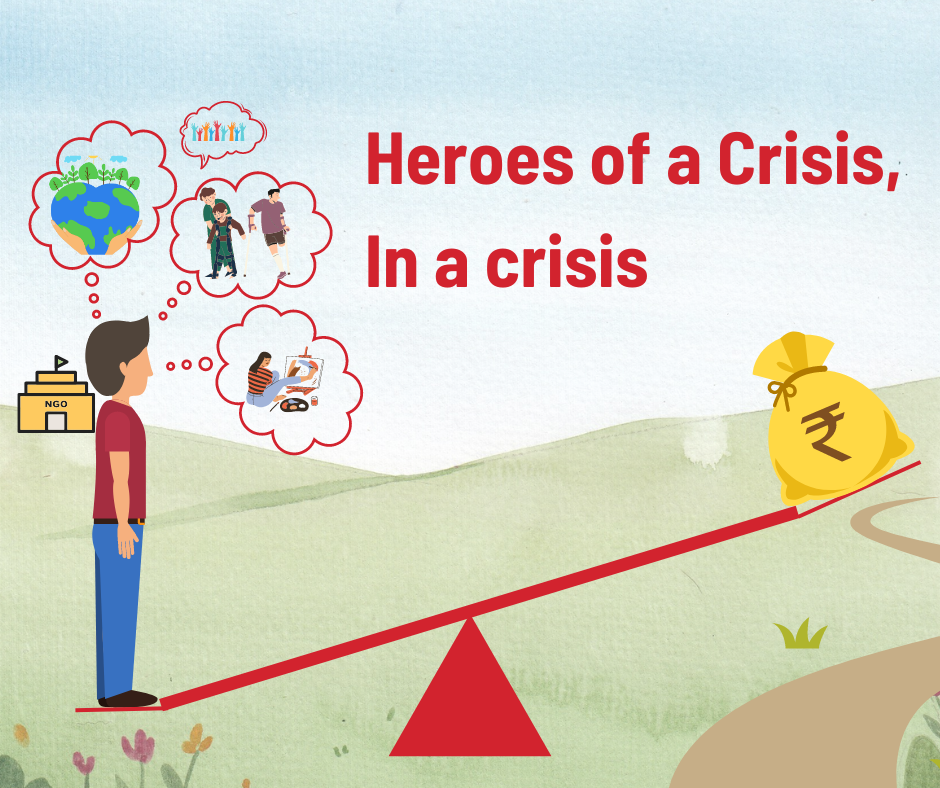
NGO Partnership Management for CSRs and Foundations- Key Webinar Takeaways
For decades, the narrative surrounding donor-NGO partnerships has been one of transactions. A staggering percentage of NGOs in India rely on donor funding, highlighting the crucial role these partnerships play. However, the traditional model often falls short. A recent webinar featuring leaders from Child Rights and You, Tech Mahindra Foundation, and Dhwani Foundation offered a refreshing perspective, emphasizing collaboration and shared purpose as the driving forces of partnerships for social change. The panellists in the webinar were
- Puja Marwaha – Chief Executive, CRY Child Rights and You
- Chetan Kapoor – CEO, Tech Mahindra Foundation
- K N Gopinath – Executive Director, Dhwani Foundation
The discussions that ensued, shed light on the various aspects of partnerships and the importance of trust, openness, and relationships in unlocking their true potential. Here are a few takeaways that will help us in making the next social change partnership more impactful.
Building Bridges, Not Walls: Trust and Shared Purpose
The foundation of any strong partnership is trust. Moving beyond a donor-agent dynamic and fostering a collaborative environment is crucial. Both sides bring unique strengths to the table: Donors have resources, and NGOs possess deep community understanding. Recognizing this shared purpose is crucial. Puja Marwaha, Chief Executive at Child Rights and You, highlighted, “We are not funding somebody to deliver something. We are in it as partners. It’s not about funding a project; it’s about working together to achieve a lasting change.”
Sustainability: A Marathon, Not a Sprint
Development is a marathon, not a sprint. Short-term projects with unrealistic expectations are a recipe for failure. Anyone venturing to solve a complex issue must recognise this and build long-term partnerships that are flexible and adaptable. Local contexts and unforeseen challenges are inevitable, for instance, a program designed for tribals in one area may not work for another. Chetan Kapoor, CEO of Tech Mahindra Foundation, emphasized this saying, “Having supported our NGO partners for more than 10 years have created an assurance that we are there to support them. This confidence enables them to focus on their work.” True partners weather these challenges together.
Beyond Funding: Building Capacity
The ideal partnership goes beyond funding projects. It empowers NGOs to thrive. Gopinath K N, Executive Director of Dhwani Foundation, highlighted this, stating, “While we started out as a donor, we have changed our approach focusing on building the necessary processes and systems that enable our partners to go to more donors.” Investing in capacity building strengthens internal processes, governance, and leadership. This focus on institutional growth ensures a lasting impact even after the partner exits. CRY, for example, has a principle of supporting NGOs for as long as needed. Puja Marwaha says, “We have supported NGOs for 5 years, 10 years and also 20 years. There are many successful organisations today whom we supported, now doing great things on their own.”
Mutual Respect: A Two-Way Street
Respect is the cornerstone of trust. Donors must acknowledge the expertise and dedication of NGOs working tirelessly on the ground. NGOs, in turn, should be open to valuable insights and resources offered by donors. Chetan Kapoor pointed out that some corporates treat NGOs as vendors, stating, “There is no way that a funder can go with the approach that we have the money, and you have to implement.” NGOs should also create the space for their teams to learn from their donors. This collaborative spirit fosters learning and growth on both sides.
Moving Beyond Transactions: Building a Collaborative Ecosystem
Another dire need of the hour is collaboration within the donor community. Sharing best practices and working together allows for a more impactful and holistic approach to social change. It is a win-win for all when donors are teammates among themselves, not competitors, working alongside NGOs to achieve a common goal.
The Bottom Line: It’s All About Relationships
The key takeaway? Successful partnerships are built on strong relationships. Donors who approach NGOs with trust, respect, and a long-term vision can create a powerful force for positive change. By working together, we can build a future where donors and NGOs are not on opposite sides of the court, but rather teammates playing for the same win. In Puja’s words “We would not have been able to survive without my partners. During covid, our partners acted before us. We have so much to learn from the smaller NGOs then they have to learn from us.”

